A Tale of Two Valleys

Data-driven agro-innovation in California’s Central Valley and Kenya’s Rift Valley
The project used a political economy approach to examine digital innovation and the commercialisation of digital data in agriculture across two inter-connected field-sites: Kenya’s Rift Valley and California’s Central Valley.
Every economy is a developing economy struggling to seize control of the technological edge.
It sought to understand how different players (tech and agritech firms, farmers, farm workers, traders and agribusinesses, policy-makers and donors) collaborate or compete to advance societal innovation while at the same time, furthering their own ideas and interests.
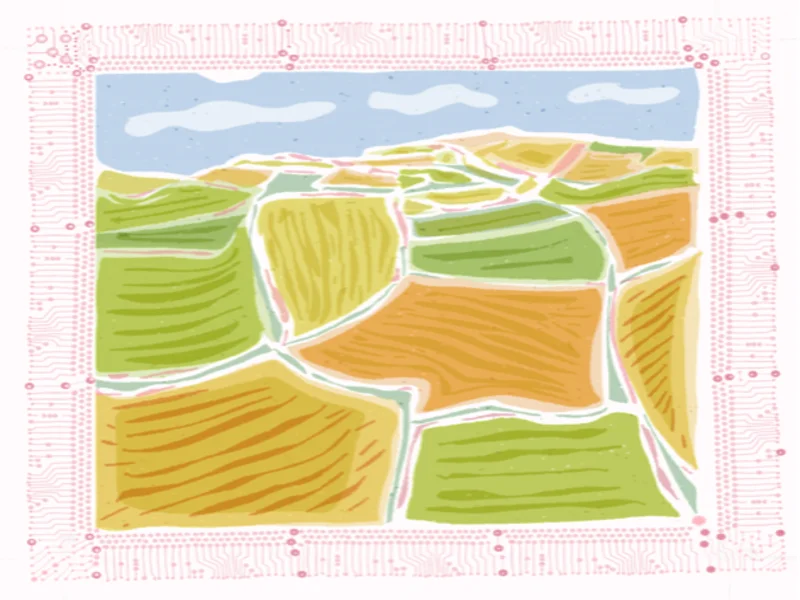
The project used a political economy approach to examine digital innovation and the commercialisation of digital data in agriculture across two inter-connected field-sites: Kenya’s Rift Valley and California’s Central Valley. It sought to understand how different players (Tech and Agritech firms, farmers, farm workers, traders and Agribusinesses, policy-makers and donors) collaborate or compete to advance societal innovation while at the same time, furthering their own ideas and interests.
Innovation plays a big role in development. It increases productivity and generates a surplus that can pay for higher wages, greater living standards and future productive investment. Governments support innovation by funding education, infrastructure and basic science research while private actors apply that basic science (and well educated workforce) to real life challenges, generating practical and commercially viable technologies. Yet while innovation generates a surplus for society as a whole, it also challenges pre-existing power relationships, firing up struggles over who should capture and control that surplus (Lazonick and Mazzucato, 2013; Mazzucato, 2013; Glenna et al, 2007, 2015). The outcome of this struggle is not merely of distributional concern, but one of sustainability as well. For the economy will only grow if the surplus continues to be reinvested in broad based productivity growth.
Digital technologies are a case in point. Their pervasive reach has profound implications for the economies of poor and rich countries alike. Innovators and tech firms are building digital apps and platforms that simultaneously boost productivity and efficiency yet also create opportunities for actors to extract new value from the recording and mining of transactional data and from greater control over labour made possible through digital surveillance (Levy, 2015). Their innovations have reshaped markets and placed a strain on the regulatory frameworks and safety nets that have long stabilised our politically charged market societies (Polanyi, 1944; Ruggie, 1982). When these innovations meet a key economic sector like agriculture, the stakes are even higher. Data systems have the potential to increase efficiency, enhance outputs and boost profits and wages. But there is the risk that the benefits might be unevenly distributed. Dominant players might entrench their positions of power and undermine the possibility for the technological surplus to continue to fuel inclusive and long-term development. This possibility raises questions about the strategic role of data in both advanced and emerging economies, and forces us to consider how our societies might respond.
Every economy is a developing economy struggling to seize control of the technological edge. For advanced economies like the US to maintain their high living standards and address their increasing inequality, their societies must compete with emerging innovation clusters forming in Asia and elsewhere, and find ways to manage their technological surpluses into broad-based growth. For developing economies like Kenya to break through, their societies must boost agricultural productivity and create much-needed jobs outside of traditional farming and low productivity services. This challenge will not be easy, as automation threatens to close off the traditional pathway of moving into low-cost manufacturing and then into higher skilled manufacturing. However, while the forecast for manufacturing may be gloomy, agriculture may provide some hope.
Consumers have grown more sophisticated, demanding exotic and often technologically enhanced produce year round. Some have described this change as bringing about an ‘industrialisation of freshness’ (Cramer, 2015) while others such as Carlota Perez have suggested that resource-rich economies within Latin America and Africa might be able to use their rich natural resources to develop their own geographical-cum-technological barriers to entry within the global economy (Perez, 2015; Whitfield et al., 2016). These changes have called into question the long-standing thesis that agricultural prices necessarily decline relative to manufacturing prices as well as the notion that agricultural work is necessarily a low skilled affair. It now depends on what kinds of agriculture we are talking about: low-tech or high-tech?
On farms across the world, farmers are deploying both ‘conventional’ agricultural technology and increasingly digital technologies, which have enabled them to record information about inputs and processing techniques, improve their production processes and supply consumers with safe, easily traceable and differentiated goods (i.e. single origin, heirloom, fair trade or organic, etc). Embracing technology has both improved their productivity but also, in some cases, moved their farms into new areas of production in which they can command a technological premium. When compliance hardens or when such farms integrate into larger input or supply systems, these systems may become a requirement. These informational chains have value beyond farmers and compliance agencies, providing the platform operator with valuable market intelligence and frameworks for conducting research and development (Cohen, 2010; 2015; Citron and Pasquale, 2014). Thus while digital platforms promise to increase production, reduce waste and ensure compliance, perhaps more significantly, they also generate a new kind of economic value (or technological premium) from the agricultural data itself.
Will this ‘datafication’ of the agricultural value chain boost the competitiveness of agriclusters in emerging countries like Kenya? Or will it instead widen the knowledge gap, with actors from more advanced economies monopolising control over the technological surplus generated by digital data on farms in both North and South? The discussion of Data for Development (D4D), a field increasingly popular among policy-makers and development practitioners, has so far largely neglected these questions. In fact, this debate has mostly focused on humanitarian aid and on Open Data frameworks that incentivize the participation of multinational firms in humanitarian programs (Mann, 2018). Our project departs from this trend by asking, might data have a strategic role to play in achieving more inclusiveeconomic growth in both North and South?
The premise of the study was that ‘development’ occurs across North and South. Thus, our choice of field sites is not driven by a comparative logic but rather an inter-connected one. The project looked at how innovation and value capture play out within and across Kenya and the US.

Kenya has emerged in recent years as a breeding ground for digital innovation. The vision of a Silicon Savannah cultivated by innovators and investors, has catalysed expectations of high economic growth, which have seeped into the Kenyan government and donor plans to boost agriculture. They anticipate a new Green Revolution within the Rift Valley- the country’s breadbasket. After decades of under-investment, partnerships between Agribusiness, banks, start-ups, NGOs and governments have formed to raise farm-level agricultural productivity and connect Kenyan farms to global value chains. Digital innovators are playing their role. They are building mobile advice platforms and sensor networks that collect climate and input information, and are working with banks and governments to roll out payment and biometric identity systems to interlink the personal identities, financial behaviour and social networks of farmers and traders. For-profit digital innovation is favoured and developers are encouraged to look West to Silicon Valley for inspiration. Thus while NGOs and governments help scale digital networks and bring new users into databases, innovators are under pressure to make their businesses financially ‘sustainable’ and thus monetise data flows. Nevertheless we can envision different scenarios. Such data could strengthen statistical expertise and economic planning systems, or help Kenyan research scientists in their labs, or help educate farmers about how to increase the value of their farms or such capabilities could simply deepen the penetration of multinational research, agribusinesses and financial institutions. Much depends on how actors bargain over their terms of engagement in the innovation process.
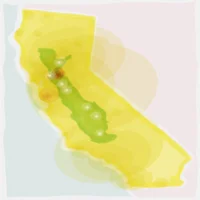
On the other side of the world, the US has a long-standing reputation for its innovative and powerful Agri-tech, Agrichemical firms and agricultural heartlands. Its firms and research scientists have deep footprints in African agriculture, collaborating in commercial and non-profit innovation and developing projects in consultation with actors such as US-AID and the Bill and Melinda Gates Foundation. As we are interested in both global and domestic struggles, we focus on California’s Central Valley due to its rich agricultural diversity, its historically strong worker unions and its innovative farmer cooperatives, as well as the public support given to the tech industry around San Jose. The key players in the Central Valley are not only farmers, but also agribusiness, agritech start-ups and research centres, aiming to build applications to meet global markets. As digital technologies have become ubiquitous in US agricultural production,American farm owners have grown more aware of the value of their data while US policy-makers have begun to explore alternative governance models. Debate has opened up over whom should the technological surplus but the future is uncertain here too, reflecting the relative power of groups to assert control.
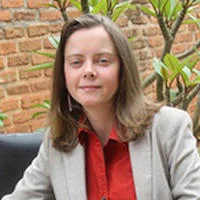
Laura Mann is an Assistant Professor in the Department of International Development and a research affiliate of the Firoz Lalji Institute for Africa. She is a sociologist whose research focusses on the political economy of development, knowledge and information and communication technologies in Africa. Before joining LSE, she worked as a postdoctoral researcher at the Oxford Internet Institute and at the African Studies Centre in Leiden. In addition to ATale of Two Green Valleys, Laura is working on a book manuscript analysing the economic ideology of Sudan’s Islamist movement and its impact on higher education policy. She has two smaller side-projects: one in collaboration with Kate Meagher, Gianluca Iazzolino and Padraig Carmody exploring the impact of Uber on African informal transport livelihoods and another in partnership with Syerramia Willoughby and Tin El-Kadi critically exploring North-South knowledge production in and about Africa.

Gianluca Iazzolino is a post-doctoral research fellow at the Firoz Lalji Institute for Africa. His main research interests are ICTs, digital finance and informal economy and focuses on the relationship of technological innovation and power dynamics, and processes of inclusion and exclusion. Gianluca had done extensive fieldwork in Kenya, Uganda, Somaliland and has worked for NGOs in Senegal, Burkina Faso and Niger. He has consulted on mobile money and digital financial inclusion for, among others, UN capital Development Fund (UNCDF), FSD Kenya, FAO Somalia and the Rift Valley Institute. He holds a PhD from the Centre of African Studies (CAS), University of Edinburgh, where he did a thesis on Somali transnational networks in Kenya, Uganda and Somaliland. He was previously a postdoctoral fellow at the Centre for Socio-legal Studies, University of Oxford, and a fellow of the Institute of Money, Technology and Financial Inclusion (IMTFI), University of California Irvine.
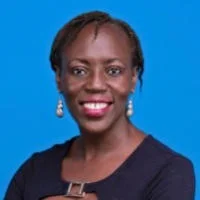
Marion Ouma completed her doctorate studies in Sociology under the South Africa Chair Initiative (SARChl) in Social Policy at the University of South Africa in 2019. Educated at the University of Nairobi for both her Bachelor’s and Master’s degrees, she has previously worked at various national and international non-governmental organisations. Her research interests include sociology, social policy, social protection, policymaking and the political economy of Africa’s development. She has published in Critical Social Policy and has a book chapter in The African Political Economy (2020).
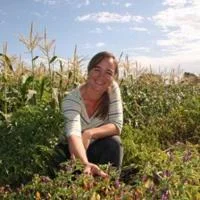
Ildi Carlisle-Cummins directs the Cal Ag Roots Project at the California Institute for Rural Studies, where she produces audio stories and live storytelling events that reveal important moments in the history of California farming. She received her M.A. in Community Developments from the University of California at Davis and has worked with California farmers, food movement activists and researchers for more than 15 years.

Musdalafa Lyaga is an International award winning audio visual agriculture content producer. Currently, he works as a radio producer at Biovision Africa Trust producing Farmer radio programs aired at the national broadcaster, Kenya Broadcasting Corporation services (KBC). Musdalafa also has a passion for video production and has produced both full length and short film features for Centre for Rights Education and awareness (CREAW), Thomson Reuters Foundation, International Centre for Insect Physiology and Ecology (icipe), International Fertiliser Development Centre, CABI, SNV Kenya, Access Agriculture, among others. You can view his content on https://www.agtube.org/en/user/2268/videos

Grace Magambo has over 7 years of media experience, both in the public and private sectors in Rwanda. Her most recent research work was with Oxford University's Internet Insitute on a project to gauge effects of fiber optic internet on the tea and tourism sectors within East Africa. Formerly with Rwanda's public broadcaster RBA, She is now pursuing her M.A in Media and Communication Science at the Ilmenau University of Technology.
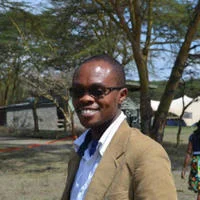
Geoffrey Onditi is a radio journalist with 9 years of experience in radio broadcasting. He currently works at Kenya Broadcasting Corporation (KBC) as a radio producer for the National station (KBC English Service) and station manager for Minto FM. Minto FM is one of the brand stations of KBC. He has specialized in science reporting for radio, and has a special inclination to agriculture. You can find Geoffrey on Twitter at @G_Onditi, on Facebook at https://www.facebook.com/geoffrey.onditi, and Instagram @geoffreyonditi.

Yovanka Paquete Perdigao is the Communications and Events Officer at the Firoz Lalji Centre for Africa. She holds an Msc in Violence, Conflict and Development from SOAS, University of London. Prior to joining the FLCA, Yovanka worked in programming, fundraising and communications at the Africa Centre, Africa Research Institute and the Royal African Society. Interested in lusophone literature, migration issues and politics of memory, Yovanka has written a number of fiction and non-fiction pieces, which have been featured on the Guardian, Brittle Paper, AFREADA, etc.

Benjamen Walker is a independent radio producer and host of the podcast Benjamen Walker’s Theory of Everything, a founding member of the Radiotopia network. His work has aired on NPR, the BBC, the CBC and the ABC. He also produced Big Ideas, a philosophy podcast for The Guardian. He created his first podcast in 2004 while working at the Berkman center for Internet and Society at the Harvard Law School. From 2008 to 2010 he was WNYC’s Senior Culture producer and from 2010 to 2013, he produced and hosted Too Much Informationfor WFMU and curated their Radiovisionconference in New York City. He has been a guest speaker and fellow at various festivals and international institutions (Sydney Writers’ Festival, Les subsistances in Lyon, France, Poets House, Tow Center at Columbia University, Oorzaken Festival in Amsterdam). He also has taught in the Journalism and design program at the New School.
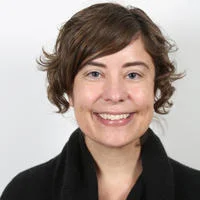
Dr Wendy Willems is Assistant Professor in the Department of Media and Communications at the London School of Economics and Political Science. Her research interests include global digital culture and social change; postcolonial/decolonial approaches to media and communications; media culture and neoliberalism in the Global South; and popular culture, performance and politics in Africa. She is co-editor of Civic Agency in Africa: Arts of Resistance in the Twenty-First Century(Oxford: James Currey) and Everyday Media Culture in Africa: Audiences and Users(London: Routledge).
Shamel Azmeh (Bath University)
Sally Brooks (University of York)
Fiona Smith (Open Data Institute)
Tom Fisher (Privacy International)
Tin Geber (The Engine Room)
Lisa Gutermuth (Tactical Tech/Ranking Digital Rights)
Graham Harrison (Sheffield University)
Bill Hoffman (World Economic Forum)
Elizabeth Hull (SOAS)
Karuti Kanyinga (University of Nairobi)
Betty Kibaara (Rockefeller Foundation and AGRA)
Bill Lacy (UC Davis)
Bill Maurer (UC Irvine)
Kate Meagher (LSE)
Thandika Mkandawire (LSE)
Simon Mwamba (Adviser to African Farming Cooperatives)
Bitange Ndemo (Universityof Nairobi)
David Runsten (Community Alliance with Family Farmers)
Sharath Srinivasan (Cambridge University/ Director of African Voices)
Linnet Taylor (Tilburg University)
Jeni Tennison (Open Data Institute)
Mary Kay Thatcher (American Farm Bureau)
Lindsay Whitfield (Roskilde University)
Wendy Willems (LSE)
Tin El Kadi and Laura Mann presented joint papers on the economic implications of decolonizing knowledge debates at the ASAUK conference in Birmingham in September 2018 and at the ASA-US conference in Atlanta in November, 2018.
Laura Mann took part in a workshop on platformisation organised by ITforChange in Mumbai, India, where she spoke about the project with ITforChange’s international network of researchers.
Laura Mann and Gianluca Iazzolino took part in the UNCTAD E-Commerce weekin April 2018.
Laura Mann and Gianluca Iazzolino took part in a EU Parliamentary Group hearingon Digitisation in Development in April 2018.
Laura Mann spoke at a forthcoming UNCTAD expert meeting in March 2018
Laura Mann's research on big data was featured in the leading German languages business newspaper, Handelsblatt
Mann, L. (2018) "Corporations Left to Other Peoples’ Devices: A Political Economy Perspective on the Big Data Revolution in Development" Development and Change 49(1): 3-36.
Foster, Christopher, Graham, Mark, Mann, Laura, Waema, Timothy and Nicholas Friederici (2018) "Digital Control in Value Chains: Challenges of Connectivity for East African Firms" Economic Geography 94(1)
Connectivity at the OP Forum (2017) "Connectivity at the Bottom of the Pyramid: ICT4D and Informal Economic Inclusion in Africa" Bellagio Centre White Paper, December 2017.
Meagher, K. and L. Mann (2017) "Mobile Money & Informal Economic Inclusion in Africa" Connectivity at the BOP Policy Brief No 1.
Mann, L. and K. Meagher (2017) "Digital Tech & Inclusive Agriculture in Africa" Connectivity at the BOP Policy Brief No 2.
Meagher, K. and L. Mann (2017) "Impact Sourcing & Informal Economic Inclusion in Africa" Connectivity at the BOP Policy Brief No 3.
Mann, L. and K. Meagher (2017) "Digital Tech & Inclusive Transport in Urban Africa" Connectivity at the BOP Policy Brief No 4.
Meagher, K. and L. Mann (2017) "Digital Solutions and African Informal Economies: Promoting Social Best Practice" Connectivity at the BOP Policy Brief No 5.
Iazzolino, G., & Stremlau, N. 2017. New media and governance in conflict. Third World Quarterly, 38(10), 2242-2257.
Stremlau, N. and Iazzolino, G. 2017. Communications, Power and Governance in Democratisation Conflicts, MeCoDem Working Paper series, April
Iazzolino, G and Stremlau, N. 2017. Comparative Analysis of Political Communication and Media Strategies in Conflict, MeCoDem Working Paper series, March
Mann, L. (2016) "The Data Revolution in Africa" The African Technopolitan. 4: 90-92.
Meagher, K., Mann, L. and M. Bolt (2016) "Introduction: Global Economic Inclusion and African Workers" Journal of Development Studies 52(4):471-482
Mann, L. and M. Graham (2016) "The Domestic Turn: Business Processing Outsourcing and the Growing Automation of Kenyan Organisations" Journal of Development Studies 52(4): 530-548.
Graham, M., Andersen, C. and L. Mann (2015) "Geographical Imagination and Technological Connectivity in East Africa" Transactions of the Institute of British Geographers 40(3): 334–349.
Mann, L. and E. Nzayisenga (2015) "Sellers on the Street: the Human Infrastructure of the Mobile Phone Network in Kigali, Rwanda" Critical African Studies 7(1): 26-46
Mann, L. (2014) "A Useful Digital Divide: Job Information, ICTs and the Sudanese Labour Market" Internet and Society Eds. Dutton, W. and M. Graham. Oxford: Oxford University Press.
(2014) "White Paper: Big Data and Positive Social Change in the Developing World" Rockefeller Foundation, Bellagio Centre Conference, May 2014.
Iazzolino, G. and Wasike, N. 2015. The unbearable lightness of digital money. Journal of Payments Strategy & Systems. 9, 3
Iazzolino, G. 2015. Following Mobile Money in Somaliland. The Rise of Telesom Zaad and the implication for hawala MTOs Rift Valley Institute Nairobi Working paper
Iazzolino, G., Bello, M., 2015. Dinero Movil. Los servicios financieros a través del teléfono conquistan los países en desarrollo del Sur [Mobile Money. Digital Financial Services in the Global South] El Pais Planeta Futuro, 15 July(online interactive feature in Spanish)[reportage on mobile money services in Somaliland, Burkina Faso, Haiti]
Iazzolino, G. 2014. Somaliland has embraced mobile money – but at what price? in The Guardian Global Development, 19 May.
Graham, M. and L. Mann (2013) "Imagining a Silicon Valley: Technological & Conceptual Connectivity in Kenya’s BPO & Software Development Sectors" Electronic Journal of Information Systems in Developing Countries 56(2): 1-19.